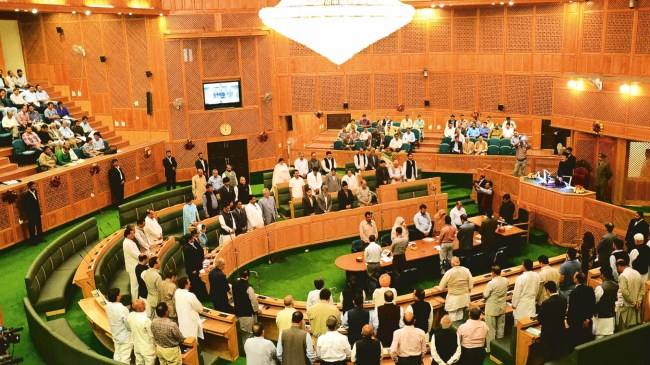Opinion Don’t call J&K UT inefficient, it’s federalism
The strength of India’s federal structure lies in the capacity to adjust without fracturing. The UT with an Assembly is a constitutional instrument that embodies this adaptability.
 Jammu and Kashmir, following the de-operationalisation of Article 370 and the subsequent reorganisation in 2019, is operating within this constitutional flexibility. To describe the current arrangement as inefficient, as a recent editorial in this newspaper did (‘State of delay’, October 18), is to disregard its intent and its place within India’s federal design.
Jammu and Kashmir, following the de-operationalisation of Article 370 and the subsequent reorganisation in 2019, is operating within this constitutional flexibility. To describe the current arrangement as inefficient, as a recent editorial in this newspaper did (‘State of delay’, October 18), is to disregard its intent and its place within India’s federal design. The argument that a Union Territory (UT) with an Assembly is an “inefficient model” overlooks the constitutional flexibility that India’s federal system allows. The Constitution was never meant to impose a single template of governance across the Union. It recognises that different regions may require distinct administrative structures depending on geography, demography, and historical experience. Jammu and Kashmir, following the de-operationalisation of Article 370 and the subsequent reorganisation in 2019, is operating within this constitutional flexibility. To describe the current arrangement as inefficient, as a recent editorial in this newspaper did (‘State of delay’, October 18), is to disregard its intent and its place within India’s federal design.
India’s constitutional architecture explicitly provides for such hybrid models through Articles 239A and 239AA, which govern Puducherry and the National Capital Territory of Delhi, respectively. These examples demonstrate that the coexistence of an elected Assembly and Union oversight is a recognised method of reconciling local autonomy with national responsibility. In the case of J&K, this framework was conceived as a transitional phase, ensuring continuity of governance while preparing institutions for eventual statehood.
The Statement of Objects and Reasons of the Jammu and Kashmir Reorganisation Bill, 2019 made this clear. It stated that “it is necessary to reorganise the State of Jammu and Kashmir into the Union Territory of Jammu and Kashmir and the Union Territory of Ladakh in order to ensure better governance, transparency and administrative efficiency”. One may debate the political wisdom of this reasoning, but constitutionally, it is an expression of the flexibility that the framers entrusted to Parliament under Article 3.
To view this framework as inefficient is to misread its constitutional purpose. Its value lies in maintaining balance between representation and control at a time of transition. The real test of democracy is not how swiftly power is transferred but how sustainably it is exercised. A return to full statehood must therefore be approached with institutional readiness, not political urgency.
The Centre has reaffirmed its commitment to restoring full statehood, and recent elections are a step in that direction. However, this transition must be grounded in a realistic assessment of administrative and security preparedness. Handing over the full apparatus of governance before the system is ready would risk undermining both accountability and continuity.
The strength of India’s federal structure lies in the capacity to adjust without fracturing. The UT with an Assembly is a constitutional instrument that embodies this adaptability. It ensures that representation and responsibility evolve together. The restoration of statehood, when it comes, should not simply mark a political milestone but reaffirm the Constitution’s quiet genius: Its ability to combine unity with diversity, and authority with restraint.
The writer is an academic lawyer and public policy professional specialising in constitutionalism and access to justice






